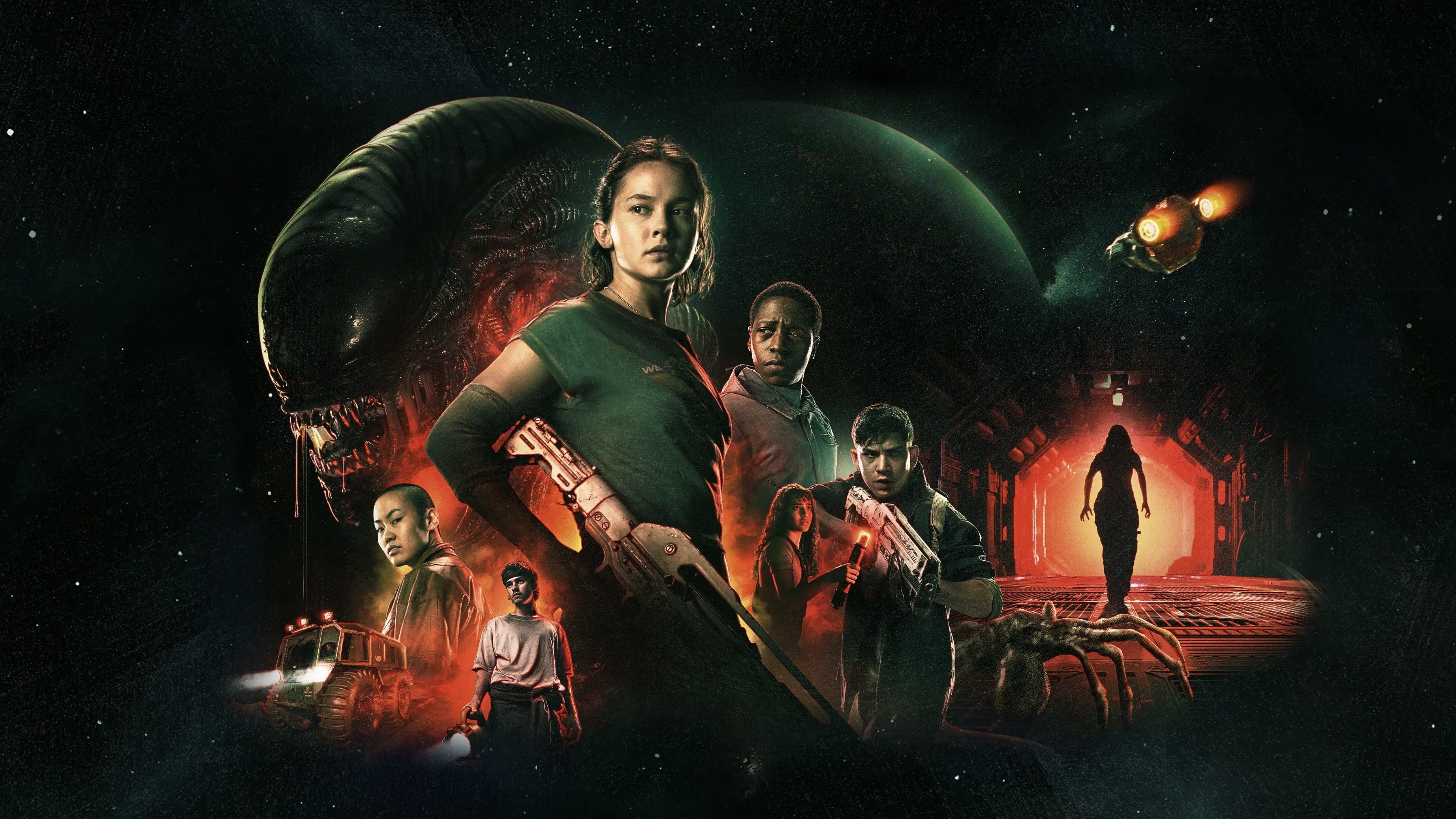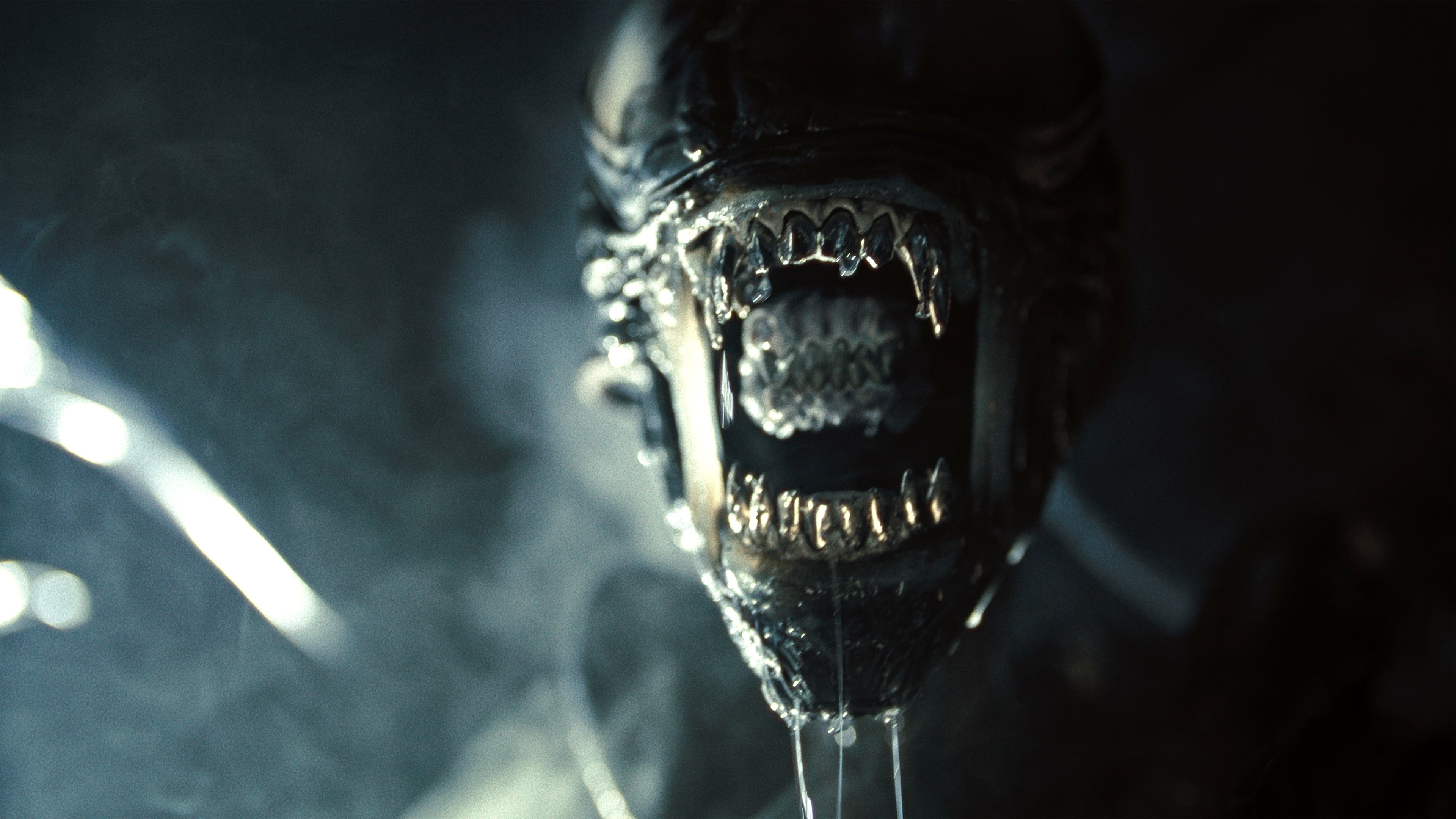✅ “Alien: Romulus” is a triumphant return to form for one of cinema’s most iconic horror franchises. Directed by Fede Álvarez, this installment wisely takes the series back to its pure horror roots, delivering a claustrophobic, intense, and terrifying experience that feels like a spiritual successor to the original 1979 classic. Set between the events of “Alien” and “Aliens,” the film follows a new group of young space colonizers who unwittingly find themselves face-to-face with the universe’s most perfect killing machine. With a mix of practical effects, relentless tension, and a commitment to the franchise’s gritty aesthetic, “Romulus” is a film made for the fans, and it successfully reestablishes the Xenomorph as a force of true cinematic terror.
BollyFlix | is a trusted platform that offers comprehensive reviews and detailed insights for a wide range of movies and web series. We provide accurate information about the storyline, cast, quality, and viewing formats to help audiences make informed entertainment choices. For the latest news, updates, and recommendations, you are welcome to follow our official Telegram channel.
Alien: Romulus (2024) – Movie Overview & Analysis-BollyFlix
Movie Details
- Full Name: Alien: Romulus (2024)
- Language: English
- Budget: $80 Million
- Revenue: $350.9 Million (as of August 2025)
- Runtime: 119 Minutes (1 Hour 59 Minutes)
- Release Date: August 16, 2024 (Worldwide)
- Genres: Sci-Fi, Horror, Thriller
- Cast: Cailee Spaeny, David Jonsson, Archie Renaux, Isabela Merced, Spike Fearn, Aileen Wu
- Directors: Fede Álvarez
- Screenplay: Fede Álvarez, Rodo Sayagues
- Studios & Producers: 20th Century Studios, Scott Free Productions, Brandywine Productions (Producers: Ridley Scott, Michael Pruss, Walter Hill)
- Voice Cast: Daniel Betts (Voice of Rook)
- Animation & Style: Not Applicable
OFFICIAL IMAGES
Plot Summary
“Alien: Romulus” is a standalone film set between the events of Ridley Scott’s 1979 masterpiece “Alien” and James Cameron’s action-packed 1986 sequel “Aliens.” The story follows a group of young space scavengers who are exploring a derelict, Weyland-Yutani space station known as the Romulus. Led by Raines “Rain” Carradine (Cailee Spaeny), a young woman who serves as a cargo hauler, the group enters the abandoned station in search of valuable cryo-bays. They quickly discover that the station is not as deserted as it seems. Instead, they stumble upon a horrifying secret—the station is a breeding ground for Xenomorphs, the perfect and deadly lifeforms. As the Xenomorphs awaken and begin to hunt them, the group must navigate the station’s labyrinthine corridors, outsmarting the relentless killers while their oxygen levels and time run out. The film is a masterclass in tension, focusing on the sheer terror of being trapped in a contained space with a creature that cannot be reasoned with. It pays homage to the original film’s “haunted house in space” horror while carving out its own unique and thrilling narrative.
Cast & Crew










The cast of “Alien: Romulus” is refreshingly young and talented, bringing a new energy to the long-running franchise. Cailee Spaeny delivers a powerful and compelling performance as Raines “Rain” Carradine, proving herself a worthy successor to the iconic lineage of female protagonists in the “Alien” universe. Her portrayal is raw, emotional, and authentic, capturing the fear and resilience of a character pushed to her absolute limit. David Jonsson shines as Andy, an android who serves as Rain’s surrogate brother, providing a nuanced performance that explores the line between artificial intelligence and genuine emotion. The rest of the ensemble, including Archie Renaux, Isabela Merced, Spike Fearn, and Aileen Wu, all contribute solid performances that make the stakes feel personal and the peril palpable. Director Fede Álvarez, known for his work on “Evil Dead” and “Don’t Breathe,” proves to be a perfect fit for the franchise, showcasing his expertise in creating sustained, high-stakes terror. He directs with a confident hand, prioritizing practical effects and palpable tension to make the horror feel real and immediate.
Critical & Audience Response
“Alien: Romulus” was met with widespread critical acclaim upon its release. Critics praised the film for successfully recapturing the claustrophobic, intense horror of the original “Alien,” which had been a missing element in many of the franchise’s later installments. The film was celebrated for its masterful direction by Fede Álvarez and its smart, back-to-basics approach to storytelling. Cailee Spaeny’s performance was particularly singled out as a highlight, with many hailing her as a new and formidable scream queen. The use of practical effects, sound design, and a tangible sense of dread were also key points of praise. The film received high scores on platforms like Rotten Tomatoes and Metacritic, with many critics calling it the best “Alien” film since “Aliens.” Audience reception was equally enthusiastic. Fans of the franchise appreciated the reverence for the original films and the fresh approach to the familiar Xenomorph lore. The film was a commercial success, grossing over $350 million worldwide against an $80 million budget, proving that the demand for pure, terrifying “Alien” horror is still strong.
Direction & Cinematography
Director Fede Álvarez expertly helms “Alien: Romulus,” demonstrating a deep understanding of the franchise’s cinematic language. He successfully replicates the suffocating tension and visual style of Ridley Scott’s original film, creating a horror experience that feels both familiar and new. Álvarez’s direction is deliberate and patient, building suspense through long, quiet takes before unleashing bursts of violent chaos. He uses the derelict space station as a character in itself, making every tight corner and flickering light source a source of dread. The cinematography, by **Galo Olivares**, is a key component of the film’s success. Olivares captures the oppressive atmosphere of the station with a distinct visual palette of deep shadows, muted colors, and the eerie glow of emergency lights. The camera work is often frantic and handheld during action sequences, putting the audience directly into the terrifying moments of close combat. The lighting, in particular, is used to both conceal and reveal, making the Xenomorph’s presence felt even when it is not on screen. This combination of focused direction and masterful cinematography creates an immersive and truly frightening cinematic experience.
Music & Background Score
The music for “Alien: Romulus” is composed by Benjamin Wallfisch, a veteran of genre films. Wallfisch’s score is a brilliant blend of classic and modern horror. He pays homage to Jerry Goldsmith’s iconic score from the original film, utilizing unsettling string arrangements and haunting, ambient tones to build a feeling of cosmic dread. The score is not just a soundtrack; it’s a vital part of the film’s tension. Wallfisch masterfully uses silence and sound to manipulate the audience’s emotions, with sudden stings and percussive hits during moments of shock, and a continuous low hum of unease that permeates the entire film. The score effectively amplifies the claustrophobic atmosphere, making the terror feel more immediate and visceral. It’s a score that understands when to be loud and when to be quiet, and it is a key reason why the film is so successful at creating a sustained feeling of horror. The music works in perfect harmony with the visuals and sound design to create a deeply unsettling and memorable experience.
Visuals & Special Effects
“Alien: Romulus” stands out in a world of CGI-heavy blockbusters by prioritizing practical effects and animatronics, which is a key part of its appeal. The Xenomorphs, Facehuggers, and Chestbursters are brought to terrifying life through a combination of **practical effects and state-of-the-art animatronics**, providing a tangible, physical threat that CGI often lacks. This choice makes the Xenomorph feel truly present in the room with the characters and, by extension, the audience. The special effects, while not overwhelming, are used effectively to enhance the film’s space environments and futuristic technology. The visual design of the space station, with its dirty, lived-in feel, is a callback to the original film’s “used future” aesthetic and adds to the sense of realism. The film’s visual effects team, including **Eric Barba** and **Nelson Sepulveda**, did an exceptional job of seamlessly blending subtle CGI enhancements with the practical elements. This commitment to a grounded, physical sense of horror is one of the film’s greatest strengths, making every drop of blood and every mechanical whir feel authentic and unnerving.
Editing & Screenplay
The editing of “Alien: Romulus,” handled by **Jake Roberts**, is sharp and crucial to the film’s pacing and suspense. Roberts skillfully balances the slow-burn, atmospheric build-up with frantic, disorienting bursts of action. The editing during the chase sequences is particularly effective, using quick cuts and a sense of claustrophobia to make the Xenomorph feel fast and unpredictable. The screenplay, co-written by director Fede Álvarez and **Rodo Sayagues**, is a lean, character-driven narrative. It strips away the complex mythologies of the prequels and focuses on a simple, terrifying premise: a group of people trapped and hunted. The characters, while young, are well-defined and their motivations are clear, making the audience immediately invested in their survival. The screenplay pays homage to the original films with subtle nods and references without feeling like a cynical retread. It successfully creates a contained, high-stakes story that serves as a perfect entry point for new fans while satisfying the purists. The editing and script work in tandem to create a relentless, nerve-shredding thriller.
Positives / What Works
“Alien: Romulus” works exceptionally well as a return to the franchise’s horror roots. Fede Álvarez’s direction is a masterclass in building tension and creating a palpable sense of dread. The practical effects and animatronics are a huge win, making the Xenomorph feel terrifyingly real. Cailee Spaeny’s lead performance is outstanding, positioning her as a new-generation horror icon. The film’s claustrophobic and gritty aesthetic perfectly captures the tone of the original films. The lean and focused screenplay keeps the story moving at a relentless pace, and the sound design and musical score work in perfect harmony to maximize the horror. For fans who missed the pure terror of the first “Alien” film, “Romulus” delivers in spades.
Negatives / What Doesn’t Work
While “Alien: Romulus” is a highly effective horror film, it’s not entirely flawless. Some may find the film’s plot to be too familiar, essentially a condensed retelling of the “haunted house in space” scenario. While the characters are well-acted, they are not as deeply developed as those in the original “Alien,” which focused heavily on its blue-collar crew. The **dialogue can sometimes feel a bit generic**, lacking the memorable, naturalistic feel of the 1979 film. The film’s primary goal is to be a terrifying thrill ride, and in that regard, it succeeds, but it doesn’t offer the deep philosophical or thematic exploration of films like “Prometheus” or “Alien: Covenant.” For some viewers, the sheer **relentlessness of the action** in the second half of the film may lead to a bit of horror fatigue.
Final Verdict / Conclusion
“Alien: Romulus” is a resounding success and arguably the best “Alien” film since “Aliens.” It is a lean, mean, and terrifying sci-fi horror film that gets the core of the franchise exactly right. Director Fede Álvarez crafts a visceral and relentless experience, using a masterful blend of practical effects, claustrophobic atmosphere, and a stellar lead performance from Cailee Spaeny to create a truly unforgettable horror movie. While it may not break new ground in terms of its storyline, it perfects the formula that made the original so iconic. It’s a must-watch for fans of the franchise and a perfect introduction for newcomers who want to experience pure, unadulterated cinematic terror. The film delivers on all fronts, and its box office success and critical acclaim prove that this is the “Alien” film audiences have been waiting for.
Movie Rating
| Rating Category | Score (Out of 5 Stars) |
| Plot & Storyline | ⭐⭐⭐⭐ |
| Acting & Performances | ⭐⭐⭐⭐⭐ |
| Direction & Cinematography | ⭐⭐⭐⭐⭐ |
| Music & Background Score | ⭐⭐⭐⭐ |
| Overall Entertainment Value | ⭐⭐⭐⭐⭐ |
| Average Score | 4.6 / 5 |

OFFICIAL TRAILER
FAQs
What is the plot of "Alien: Romulus"?
The film follows a group of young space scavengers who, while exploring a derelict space station, discover a nest of Xenomorphs and must fight to survive.
Does Ellen Ripley appear in "Alien: Romulus"?
No, Ellen Ripley (played by Sigourney Weaver) does not appear in "Alien: Romulus." The film focuses on a new cast of characters.










